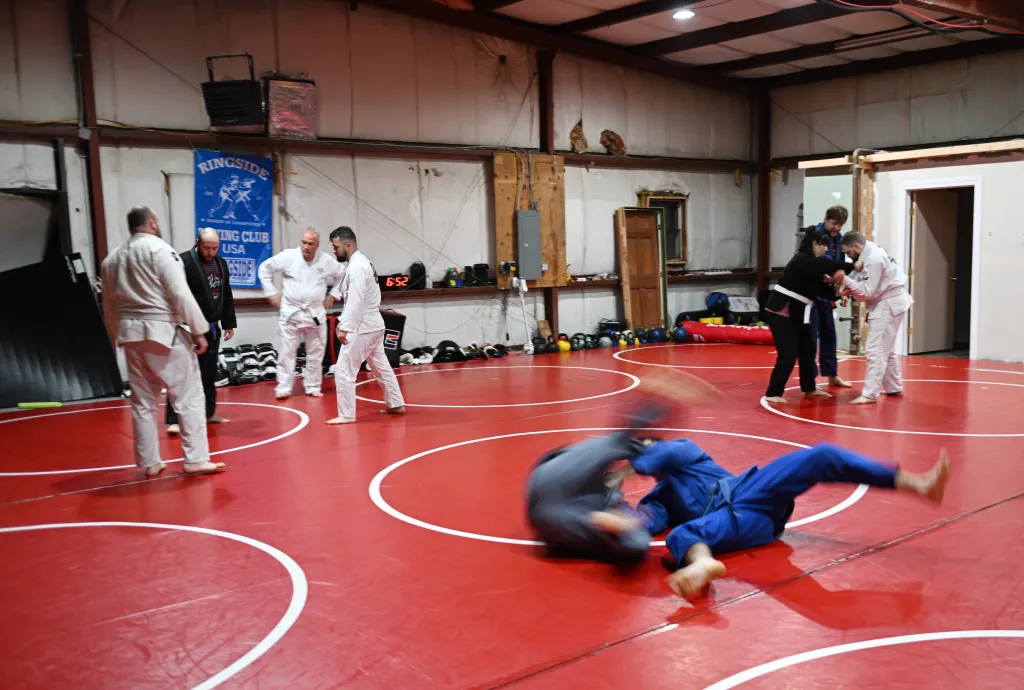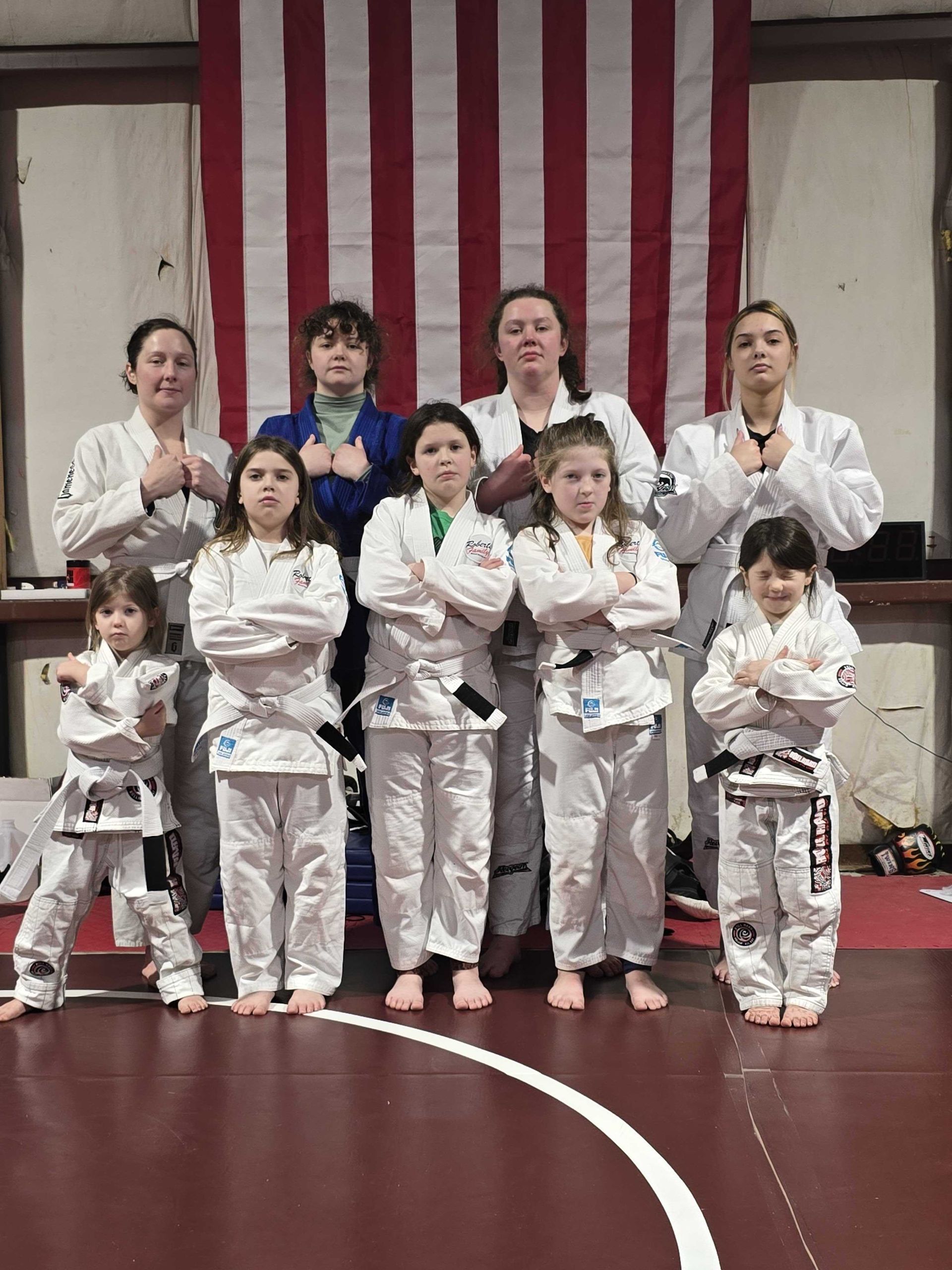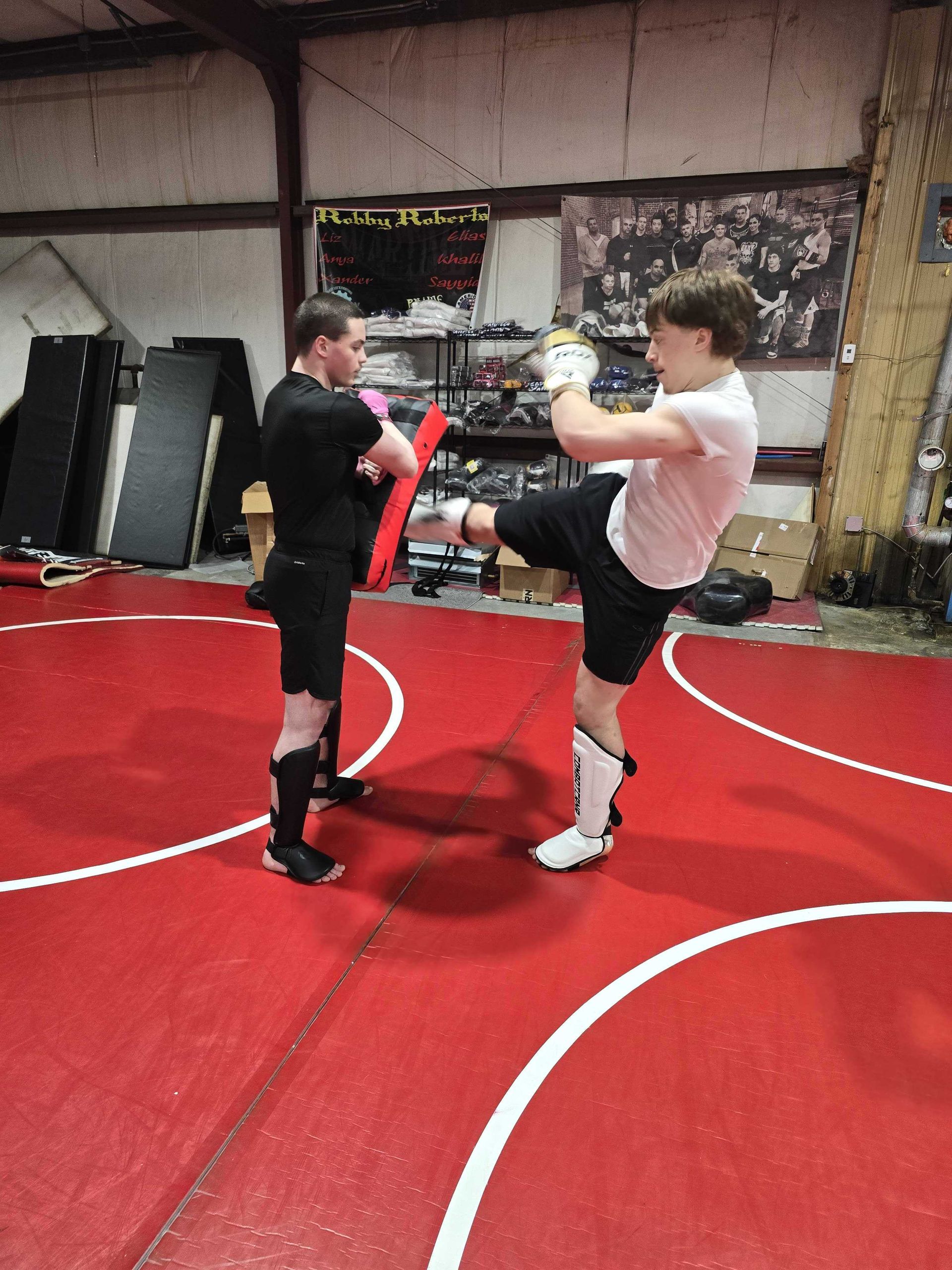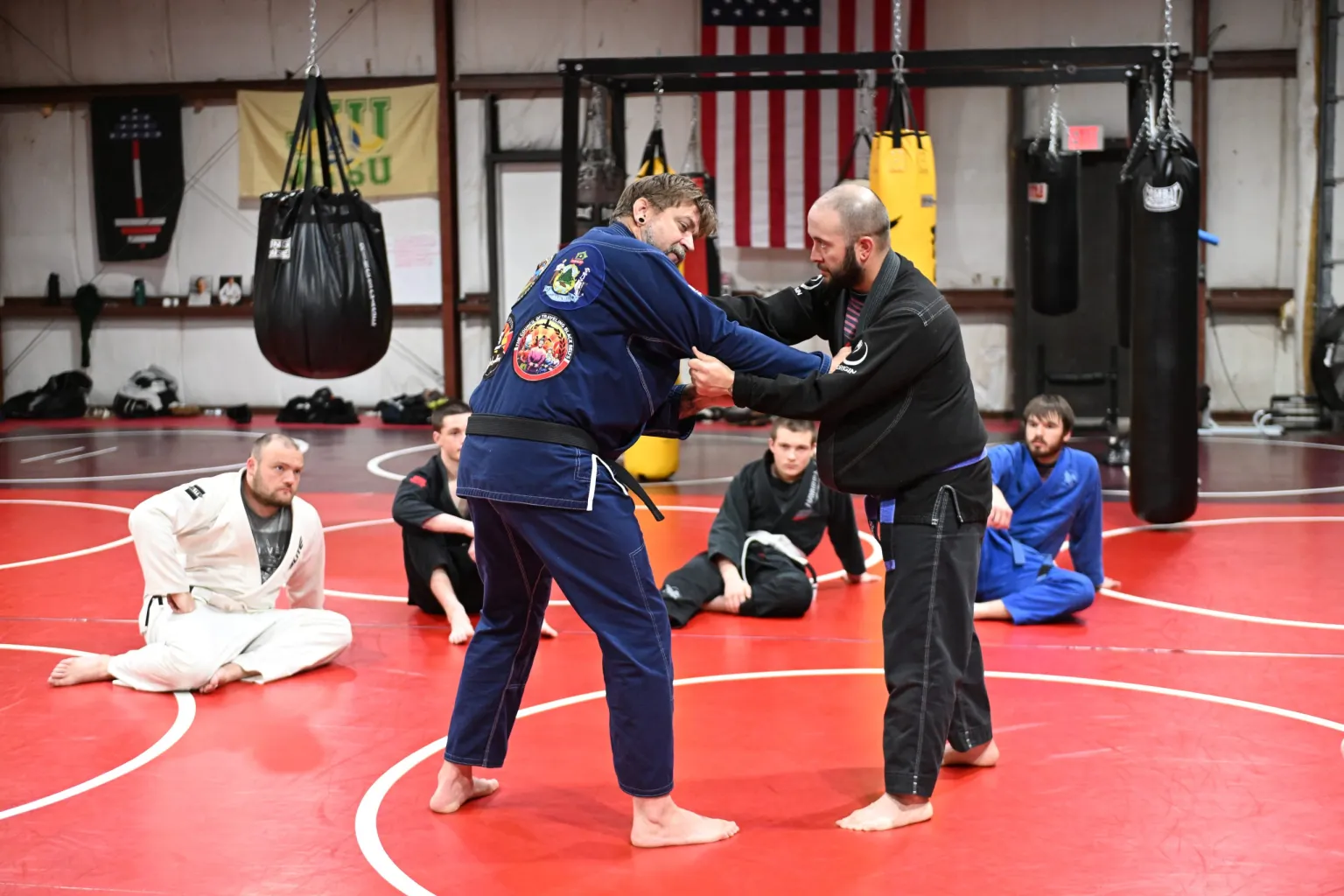The Benefits of Martial Arts Training for College Students
Martial arts are a diverse range of practices that combine physical exercise, self-defense techniques, and mental discipline.
From traditional styles like Karate and Taekwondo to more modern practices like Brazilian Jiu-Jitsu and Mixed Martial Arts (MMA), martial arts offer numerous benefits that go beyond physical fitness. College students, in particular, can gain a lot from martial arts training. With college life being a mix of academic pressures, social challenges, and personal growth, martial arts can serve as a holistic approach to managing these demands.
For many students, martial arts provide an engaging way to stay fit, relieve stress, and develop essential life skills. Whether through on-campus clubs or local studios, the accessibility of martial arts makes it a viable option for students looking to enhance their college experience.
Physical Benefits of Martial Arts Training
One of the most obvious benefits of martial arts training is the physical fitness it promotes. Engaging in martial arts can lead to significant improvements in strength, endurance, and overall physical conditioning. The dynamic movements involved in martial arts, such as kicks, punches, and grappling, work various muscle groups, promoting muscular strength and cardiovascular health.
Improved Flexibility and Balance: Regular practice of martial arts helps enhance flexibility and balance, which are crucial for both athletic performance and daily activities. Movements like high kicks and evasive maneuvers stretch and strengthen muscles, improving overall flexibility and reducing the risk of injury.
Weight Management and Body Composition: Martial arts are high-intensity activities that burn a substantial number of calories. This can be beneficial for college students looking to maintain or improve their body composition. The combination of aerobic and anaerobic exercises in martial arts supports effective weight management, contributing to a healthier lifestyle.
Injury Prevention and Recovery: Unlike some other high-impact sports, martial arts emphasize proper technique and body mechanics, which can help prevent injuries. Moreover, the conditioning involved in martial arts training can aid in quicker recovery from injuries, as students learn how to properly stretch, strengthen, and care for their bodies.
Mental Health Benefits of Martial Arts
Martial arts training isn't just about physical prowess; it also offers significant mental health benefits. For college students, who often face high levels of stress and anxiety, martial arts can provide a valuable outlet for mental well-being.
Stress Relief and Relaxation: Martial arts incorporate elements of mindfulness and controlled breathing, which can help reduce stress levels. The focus required during training sessions allows students to temporarily set aside their academic concerns, leading to a clearer mind and a calmer state.
Boosted Self-Esteem and Confidence: Successfully mastering new skills and progressing through martial arts ranks can greatly boost a student's self-esteem. The sense of achievement that comes with learning complex techniques and earning belts or other accolades builds confidence that extends beyond the dojo.
Enhanced Focus and Concentration: The mental discipline required in martial arts helps students improve their focus and concentration, which can be beneficial in their academic studies. Techniques such as meditation and controlled breathing taught in martial arts can also enhance cognitive functions, aiding in better study habits and academic performance.
Academic Benefits of Martial Arts Training
Martial arts training can also have a direct impact on academic success. The discipline and focus required in martial arts can translate into better study habits and time management skills, both of which are essential for academic achievement.
Improved Time Management and Discipline: Martial arts instill a strong sense of discipline, which can help students better manage their time. Balancing training sessions with class schedules teaches students how to prioritize and allocate their time effectively, leading to a more organized and productive college experience.
Enhanced Cognitive Functions and Memory Retention: Research has shown that physical activity, including martial arts, can improve cognitive functions such as memory and learning. The strategic thinking and memorization of forms and techniques required in martial arts can enhance these cognitive skills, providing an academic edge.
Better Academic Performance Through Increased Focus: The mental clarity and focus gained from martial arts practice can lead to improved academic performance. Students who engage in regular martial arts training often report better concentration in class and a heightened ability to stay on task during study sessions.
Social Benefits of Martial Arts for College Students
Martial arts training also offers numerous social benefits, helping students build meaningful connections and develop essential social skills.
Building Friendships and a Sense of Community: Martial arts classes are often conducted in group settings, fostering a sense of community and camaraderie among participants. For college students, this can be a great way to meet new people and build friendships with individuals who share similar interests.
Learning Respect, Teamwork, and Leadership Skills: Martial arts emphasize respect for instructors, peers, and oneself. Through partner drills and group activities, students learn how to work together effectively and support one another, which can enhance their teamwork and leadership skills.
Networking Opportunities and Social Integration for New Students: For students new to campus, joining a martial arts class can provide a structured social environment that eases the transition into college life. The shared goals and collaborative spirit of martial arts training offer a platform for social integration and networking.
Self-Defense Skills and Personal Safety
One of the primary reasons many individuals take up martial arts is to learn self-defense. For college students, self-defense skills can be particularly valuable, providing a sense of security and empowerment.
Basic Self-Defense Techniques: Martial arts teach practical self-defense techniques that can be applied in real-world situations. Students learn how to protect themselves using various methods, including striking, blocking, and evasive maneuvers.
Increased Awareness and Self-Protection Strategies: Beyond physical techniques, martial arts also teach situational awareness and how to avoid dangerous situations. This heightened awareness is a critical component of personal safety, helping students navigate campus life more confidently.
How Martial Arts Training Enhances Personal Safety On and Off-Campus: Martial arts training instills a sense of self-discipline and confidence that can deter potential threats. Knowing that they have the skills to defend themselves can make students feel more secure, both on and off-campus.
Martial Arts and Emotional Resilience
Martial arts training can significantly contribute to emotional resilience, helping students cope with the ups and downs of college life.
Developing Emotional Resilience and Handling Challenges: Martial arts often involve rigorous training and overcoming physical and mental challenges. This process teaches students how to handle setbacks, persist through difficulties, and maintain a positive outlook.
Overcoming Setbacks Through Martial Arts Training: Learning a new martial art or progressing through ranks can be challenging and may involve moments of failure. However, these experiences teach students how to persevere and bounce back from setbacks, an invaluable skill both in academics and life.
Building a Positive Mindset and Perseverance: The perseverance and determination fostered through martial arts training can help students develop a positive mindset. This resilience can be especially beneficial when facing academic pressures or personal challenges.
Stress Management and Mindfulness through Martial Arts
Stress is a common issue among college students, and martial arts provide a unique way to manage it.
Introduction to Mindfulness in Martial Arts: Many martial arts incorporate mindfulness techniques, such as deep breathing and meditation, which can help students manage stress and maintain a calm state of mind.
How Martial Arts Practice Promotes Stress Reduction: The physical activity involved in martial arts releases endorphins, which are natural mood lifters. Additionally, the focus required during training helps students disconnect from daily stresses and enter a more relaxed state.
Balancing Academic Life with Martial Arts Training: Incorporating martial arts into a busy college schedule can be an effective way to manage stress and maintain balance. The regular exercise, combined with the mental focus of martial arts, offers a constructive break from academic pressures.
The Role of Martial Arts in Character Development
Martial arts are renowned for their role in character development, teaching values that extend far beyond the dojo.
Instilling Values Like Discipline, Respect, and Integrity: Martial arts training emphasizes discipline, respect for others, and integrity, values that are crucial in both personal and professional settings. These principles guide students not only in their martial arts practice but also in their interactions with others.
Character Building Through Martial Arts Challenges: Overcoming the physical and mental challenges of martial arts training builds character. Students learn how to set goals, work hard to achieve them, and handle the successes and failures that come along the way.
Long-Term Impacts on Personal and Professional Life: The values and skills learned through martial arts training can have lasting impacts, shaping students into well-rounded individuals prepared for the challenges of the real world.
Martial Arts as a Healthy Lifestyle Choice
Martial arts can be a cornerstone of a healthy and active lifestyle, promoting overall well-being.
Encouraging a Healthy and Active Lifestyle: Regular martial arts practice encourages students to stay active and make healthier lifestyle choices, such as maintaining a balanced diet and getting adequate rest.
Integrating Martial Arts with Other Fitness Routines: Martial arts can complement other fitness activities, such as running, weightlifting, or yoga. This integration provides a well-rounded approach to fitness that supports overall health and well-being.
Long-Term Health Benefits of Continued Martial Arts Practice: The benefits of martial arts extend beyond college, offering lifelong health advantages. Continued practice can help maintain physical fitness, mental sharpness, and emotional resilience throughout adulthood.
Balancing Martial Arts Training with College Life
Balancing martial arts training with the demands of college life can be challenging but is entirely achievable with the right strategies.
Time Management Tips for College Students Involved in Martial Arts: Effective time management is key for students who want to balance martial arts with their academic responsibilities. Prioritizing tasks, planning study sessions, and setting aside dedicated times for training can help maintain a healthy balance.
Balancing Academics, Social Life, and Martial Arts Training: While martial arts can be time-consuming, it also provides structure that can help students better manage their overall schedule. By integrating martial arts into their weekly routine, students can enjoy a balanced life that includes academics, social activities, and personal interests.
Real-Life Examples of College Students Excelling in Martial Arts While Managing Their Studies: Many college students successfully juggle martial arts with their studies, often finding that the discipline and time management skills gained through martial arts help them excel academically. Highlighting these success stories can inspire others to pursue martial arts training without fear of compromising their academic goals.
Overcoming Common Myths About Martial Arts
Despite its many benefits, there are still several myths and misconceptions about martial arts that can deter students from trying it out.
Debunking Misconceptions About Martial Arts (e.g., It's Only for the Strong or Aggressive): One common myth is that martial arts are only suitable for strong or aggressive individuals. In reality, martial arts are about self-discipline, respect, and personal growth, and they are accessible to people of all fitness levels.
Inclusivity in Martial Arts: Welcoming All Skill Levels and Body Types: Martial arts are inclusive and welcoming to everyone, regardless of their skill level, age, or body type. This accessibility makes martial arts an excellent choice for college students looking to start something new without feeling out of place.
Highlighting the Benefits for Beginners: Beginners in martial arts often see rapid improvements in physical fitness, mental clarity, and self-confidence. The supportive community within martial arts ensures that new students feel encouraged and motivated to continue their training.
How to Get Started with Martial Arts in College
Starting martial arts in college is easier than it might seem, with many resources available on and near campuses.
Choosing the Right Martial Art for Your Needs and Goals: With so many martial arts styles available, students should consider their personal goals when choosing a discipline. Whether they are looking for a vigorous workout, a focus on self-defense, or a more meditative practice, there is a martial art suited to their needs.
Finding Martial Arts Classes On or Near Campus: Many colleges offer martial arts clubs or classes as part of their recreational programs. Additionally, local studios often provide student discounts, making martial arts training accessible and affordable.
Tips for Beginners: What to Expect in Your First Class: New students should come prepared with comfortable workout attire, a positive attitude, and an openness to learning. Instructors will guide beginners through the basics, ensuring they feel comfortable and confident as they start their martial arts journey.
Success Stories: College Students and Martial Arts
The transformative power of martial arts is evident in the success stories of college students who have integrated it into their lives.
Case Studies or Testimonials from College Students Benefiting from Martial Arts: Personal testimonials from college students can highlight the diverse ways martial arts have benefited them, from improved grades to better stress management and a more active social life.
Inspirational Stories of Personal Transformation Through Martial Arts Training: Many students find that martial arts training has helped them overcome personal challenges, develop a stronger sense of self, and build the resilience needed to succeed in both college and beyond.
Frequently Asked Questions
1. How often should a college student train in martial arts? Training frequency can vary based on individual goals, but most students benefit from attending classes 2-3 times per week. This allows for consistent progress without overwhelming academic responsibilities.
2. Can martial arts help with academic stress? Yes, martial arts can be an effective stress reliever, offering a physical outlet for tension and teaching mindfulness techniques that help manage academic pressures.
3. Is martial arts training safe for beginners? Martial arts are generally safe for beginners, as long as students follow proper techniques and instructions from qualified instructors. Most classes start with basic movements to ensure students build a strong foundation.
4. What equipment is needed for martial arts training? The equipment needed depends on the martial art. Common items include a uniform (gi), belt, and protective gear for sparring. Many studios provide equipment for beginners.
5. Can martial arts training be affordable? Martial arts training can be affordable, especially with student discounts or on-campus clubs. Many schools and studios offer flexible payment options and sliding scales based on financial need.
6. How can martial arts benefit long-term personal development? Martial arts instill valuable life skills, such as discipline, resilience, and respect, which can benefit personal and professional growth well beyond college years.
Final Thoughts
Martial arts training offers a wide array of benefits for college students, from physical fitness and self-defense skills to mental resilience and academic improvement. It provides a holistic approach to personal development, teaching values and skills that extend far beyond the dojo. For college students seeking a balanced, enriching, and empowering extracurricular activity, martial arts stand out as a highly rewarding choice. By integrating martial arts into their college experience, students can enhance their well-being, build lasting friendships, and equip themselves with valuable tools for life's challenges.
ACCESS OUR SCHEDULE
& EXCLUSIVE WEB SPECIAL
Secure your spot and get started today with our EXCLUSIVE offer!








